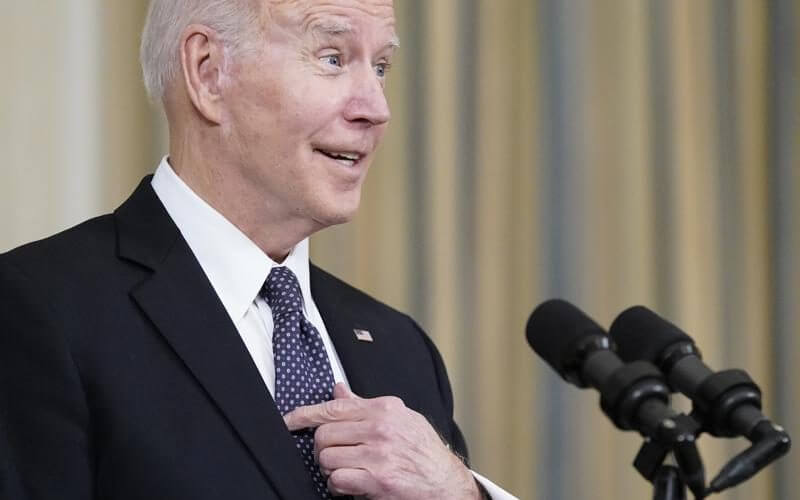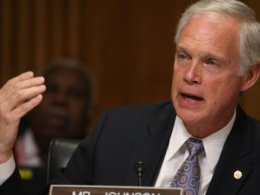President Joe Biden said Monday that he would make “no apologies” and wasn’t “walking anything back” after his weekend comment that Russian President Vladimir Putin “cannot remain in power,” attempting to turn the page on a controversy that clouded his recent trip to Europe.
The president also insisted he’s not calling for regime change in Moscow, which would have represented a dramatic shift toward direct confrontation with another nuclear-armed country.
“I was expressing the moral outrage that I felt toward this man,” Biden said. “I wasn’t articulating a policy change.”
The president’s jarring remark about Putin, which came at the end of a Saturday speech in Warsaw that was intended to rally democracies for a long global struggle against autocracy, drew criticism in the United States and rattled some allies in Western Europe.
Richard Haass, president of the Council on Foreign Relations, said he believed Biden’s comments Monday were “an effective way for the president to move beyond what was an unforced error.” Haass had originally been concerned that aggressive American rhetoric could “make Putin feel like he had little to lose by hanging tough or even escalating.”
Biden rejected the idea that his comment could escalate tensions over the war in Ukraine or that it would fuel Russian propaganda about Western aggression.
“Nobody believes ... I was talking about taking down Putin,” Biden said, adding that “the last thing I want to do is engage in a land war or a nuclear war with Russia.”
He said he was expressing an “aspiration” rather than a goal of American foreign policy.
“People like this shouldn’t be ruling countries. But they do,” he said. “The fact they do doesn’t mean I can’t express my outrage about it.”
Biden’s remark in Warsaw ricocheted around the globe despite the White House’s swift attempts to clarify that the president only meant that Putin “cannot be allowed to exercise power over his neighbors or the region.”
On Monday, United Nations Secretary General Antonio Guterres responded to Biden’s speech by saying that “we need de-escalation. We need military de-escalation and rhetoric de-escalation.”
Although Biden has frequently touted American unity with European allies since the invasion of Ukraine began, he appears to have caused some discomfort by targeting Putin in Warsaw.
French President Emanuel Macron said Sunday he “wouldn’t use those terms, because I continue to speak to President Putin, because what do we want to do collectively? We want to stop the war that Russia launched in Ukraine, without waging war and without escalation.”










